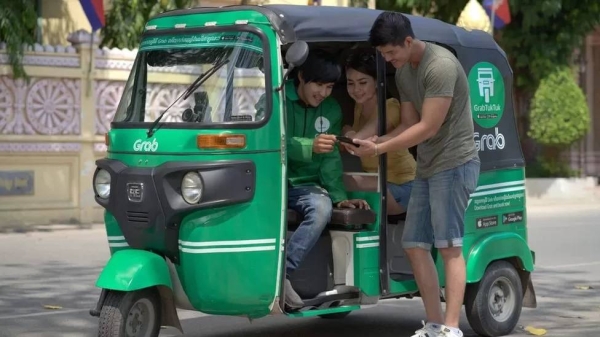
Southeast Asia"s leading ride-hailing and food delivery app, Grab, says it is cutting 1,000 jobs -- amounting to 11% of its workforce.
The company"s boss said the cuts were needed to bring down costs and ensure affordable services in the long term.
The Singapore-based firm offers deliveries, rides and financial services in eight Southeast Asian countries.
In 2018, Grab took over the operations of US-based rival Uber in the region.
In an email to employees, chief executive Anthony Tan said the cuts, which are the biggest since the start of the coronavirus pandemic, were not "a shortcut to profitability."
He also highlighted the impact of new technology and rising borrowing costs: "Change has never been this fast. Technology such as generative AI [artificial intelligence] is evolving at breakneck speed. The cost of capital has gone up, directly impacting the competitive landscape."
The so-called "super-app", known as "the Uber of Southeast Asia," offers services across the region, and is present in countries such as Malaysia, the Philippines, Singapore, Thailand, and Vietnam.
In March 2018, Grab announced that it had bought Uber"s operations in the region, in a deal it described as "the largest-ever of its kind in Southeast Asia."
Grab"s last round of job cuts was in 2020, when it shed 360 positions due to the pandemic.
The company"s New York-listed shares dipped by 1.2% on Wednesday.
The announcement comes as other gig economy companies across the world have also cut jobs.
Indonesian ride-hailing firm GoTo, Grab"s rival in Southeast Asia, cut about 12% of its workforce last year and shed another 600 jobs in March.
Also in March, food delivery firm Just Eat said that it would cut 1,870 jobs in the UK after a slowdown in sales. The firm said it would stop employing its own couriers and use contractors instead, resulting in 1,700 job losses.
And in April, US ride-hailing app Lyft announced that it would cut more than 1,000 jobs, or more than a quarter of its workforce. It also said that it would not recruit for another 250 vacant positions. — BBC












